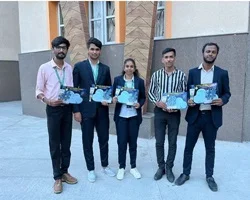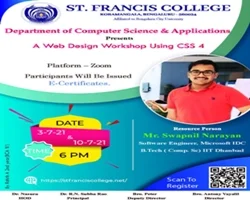About Courses
Courses offered:
a. B.C.A (Computer Applications)
b. MCA
a. Bachelor of Computer Applications:
Course summary :
The Bachelor of Computer Applications (BCA) is an undergraduate degree program in the field of computer applications. It is a popular choice for students interested in computer science and software development.
It covers subjects like programming languages, database management, networking, and software engineering. Eligibility typically requires a higher secondary school certificate with mathematics. Graduates can pursue careers as software developers, web developers, system analysts, or database administrators. BCA provides foundational skills for the IT industry and prepares students for further studies like MCA or careers in various sectors globally.
Syllabus:
View Syllabus
Eligibility for admission:
A candidate who has passed two years Pre-University Examination conducted by the Pre-University Education Board in the State of Karnataka or any other examination considered as equivalent thereto shall be eligible for admission to these programmes.
b. Master of Computer Applications
Course summary :
The two year MCA program in affiliation with Bengaluru City University aims at fostering graduate students with a high level of professional performance and employability prospects. Students undertaking the MCA program at St. Francis College are trained to explore, and acquire an in-depth knowledge of computer applications and hone their skills in computer technologies. The MCA curriculum equips the students with comprehensive knowledge of industry-relevant skills with courses in machine learning, big data analysis and cloud computing. The department has a fraternity of highly qualified, experienced and motivated faculty members who encourage students to enhance their technical skills and provide a direction for research. The department organises workshops, seminars, guest-lectures and provides industry internships to bridge the industry-academia gap. The co-curricular and extra-curricular activities are designed to ensure holistic development and groom the students into confident professionals.
Syllabus:
View Syllabus
Explore MCA
Eligibility for admission:
1. A candidate with any degree of a minimum of 3 years duration (10+2+3) from Bangalore university / Other Universities with a minimum of 50%
aggregate marks in all subjects including languages
2. The candidate has studied Mathematics/Computer science/Business Mathematics/Statistics/Computer Applications/Electronics as a subject at
PUC level or equivalent HSC (XII Standard) or at Degree level.
Outcomes
Program Outcomes:
PO1 : Computing Knowledge
Will acquire theoretical foundation in Computer Science and obtain insights about computer organisation, operating systems and system programming.
PO2 : Problem Analysis & Programming Skills
Will learn to design data structures, develop efficient algorithms for a software problem and implement them using practical programming skills.
PO3 : Database Management & Software Application Development
Will be able to design and manipulate databases; will understand the software/application development process and develop software solutions.
PO4 : GUI Design & Visual Programming Skills
Learns object oriented and visual programming skills and learn event driven programming.
PO5 : Web Application Development
Acquires skills in Java and other web technologies and develop web applications and web portals.
PO6 : Mathematical Foundation & Basic Accounting Skills
Acquires sound knowledge of mathematics, and other domains for building computing models for complex computing problems.
PO7 : Networking Knowledge
Will understand the concepts of networking, data communication and network security.
PO8 : Specialisation in relevant current technologies
Obtain insights in niche technologies through advanced courses like AI and elective courses.
PO9 : Soft Skill & Personality Development
Learns soft skills and becomes confident to compete in a challenging work environment.
PO10 : Language & Communication Skills
Will acquire literary sensibility, proficiency in Language grammar and communication skills. Will learn the art of professional business communication.
PO11 : Socially Responsible IT Professionals
Will learn ethical values, become aware of his social responsibilities and function effectively as an individual/member/leader in diverse teams
in IT /multidisciplinary environments.
PO12 : Innovations in IT
Identifies a timely opportunity and develops innovative IT solutions for diverse industries and betterment of the society at large.
Programme Specific Objective
PSO 1 : The students will be having a strong foundation in computer science with subjects like Computer
Organization, Operating Systems, Systems Programming, Data Communications and Networking, Software Engineering and Artificial Intelligence.
PSO 2 : The students will have Database design and manipulation skills, Software design and development skills and learn to develop Object Oriented,
GUI and Web applications.
PSO 3 : Students will have skills in current and niche technologies through Elective courses in Big Data, Cloud Computing, Mobile Computing and Mining.
Infrastructure
Labs
Explore Our State-of-the-Art Computer Lab Infrastructure
At St Francis college, our commitment to providing cutting-edge technology is exemplified through our advanced computer lab infrastructure. Designed to support a dynamic learning environment and cater to diverse academic and research needs, our computer labs are equipped with the latest hardware, software, and networking solutions.
.webp)
Computer Lab
.webp)
Computer Lab
Key Features of Our Computer Lab Infrastructure:
- Hardware Excellence: Our labs boast high-performance desktops , ensuring seamless computing experiences for students and faculty alike. Each station is equipped with modern peripherals to enhance productivity and facilitate efficient learning.
- Comprehensive Software Solutions: Whether it's specialised software for simulations, creative suites for multimedia projects, or industry-standard programming environments, our labs offer a wide array of software applications tailored to various disciplines.
- Robust Networking Infrastructure: With robust network connectivity powered by state-of-the-art routers and switches, our labs support reliable internet access and seamless communication among devices. Wireless connectivity is also available for added convenience.
- Security and Accessibility: We prioritise the security of our lab environment with advanced firewall protection, antivirus software, and secure authentication systems. Accessibility features ensure inclusivity, accommodating diverse student needs.
- Comfortable and Functional Environment: Ergonomically designed furniture and spacious layouts ensure comfort during long hours of study and collaboration. Thoughtful placement of equipment and cable management solutions enhance the overall user experience.
- Support and Maintenance: Our dedicated IT support team is on hand to provide technical assistance and ensure smooth operation of all lab facilities. Regular maintenance schedules and proactive monitoring guarantee optimal performance.
- Innovation and Future-Readiness: Embracing technological advancements, our labs are continuously updated to meet evolving educational demands and industry standards. Students gain hands-on experience with emerging technologies, preparing them for future careers.
Classrooms
At St Francis college, we believe in fostering a conducive learning environment through our state-of-the-art classrooms. Designed to enhance engagement, collaboration, and academic achievement, our classrooms are equipped with advanced technology and ergonomic furnishings.
Features
- Flexible Seating Arrangements: Versatile seating options cater to various teaching methodologies and promote active learning. From traditional lecture-style setups to collaborative group configurations, our classrooms are adaptable to different instructional needs.
- Audio-Visual Enhancements: High-quality audio systems ensure clear communication and enhance multimedia presentations. Projectors and screens provide crisp visuals, supporting effective content delivery across different subjects and disciplines
- Comfort and Accessibility: Spacious layouts ensure comfort during lectures and discussions.
- Environmental Considerations: Natural lighting and energy-efficient fixtures create a conducive atmosphere for learning while promoting sustainability. Well-maintained ventilation systems ensure optimal comfort throughout the year.
- Wireless Connectivity: Reliable Wi-Fi access allows students to connect their devices seamlessly, facilitating research, collaboration, and access to online resources during classes.
- Supportive Learning Environment: Our classrooms are designed to inspire creativity, critical thinking, and academic excellence. Faculty members are supported by dedicated IT staff to ensure that technology functions smoothly and enhances the learning experience.
ICT
Empowering Education with State-of-the-Art ICT
At St Francis college, we embrace Information and Communication Technology (ICT) to redefine learning and campus life. Our modern facilities feature smart classrooms equipped with interactive displays and multimedia capabilities, enhancing engagement and collaboration among students and faculty. From virtual learning environments to robust research support through digital libraries and online databases, ICT plays a pivotal role in fostering academic excellence. We prioritise data integrity, ensuring a safe and secure digital environment for all campus users. At St Francis college, ICT isn't just a tool—it's an integral part of our commitment to innovation and preparing students for successful careers in a rapidly evolving global landscape.
WiFi
Stay Connected with Seamless WiFi Connectivity at St Francis college
At St Francis College, we understand the importance of staying connected in today's digital age. Our campus boasts a robust WiFi infrastructure designed to provide reliable and high-speed internet access throughout our facilities. Whether you're studying in our modern classrooms, conducting research in the library, or collaborating with peers in common areas, you can count on seamless connectivity to support your academic journey.
Key Features of Our WiFi Facility :
- Comprehensive Coverage : Our WiFi network covers the entire campus, ensuring that students, faculty, and staff have access to the internet wherever they are on campus grounds.
- High-Speed Internet : Enjoy fast and stable internet connections suitable for streaming lectures, accessing online resources, and participating in virtual classrooms without interruption.
- Secure Access : We prioritise the security of our network with robust encryption protocols and firewall protections, ensuring safe and private browsing for all users.
- Accessibility : The WiFi network is easily accessible and user-friendly, allowing students to connect their devices seamlessly without complicated setup procedures.
- Supportive Environment : Whether you're using a laptop, tablet, or smartphone, our WiFi facility is designed to meet the diverse needs of our tech-savvy community, promoting productivity and collaboration.
Value Added Course
Value-added courses can significantly enhance a student’s skill set and provide practical knowledge beyond the regular curriculum. The Department of BCA conducts various Value added courses every semester in order to keep the students in pace with the changing technological demands in industry.
For this purpose ,the college has made MoUs with different companies/institutes for various courses. The courses are designed for 30-50 hours spanning the semester(s), usually conducted on weekends apart from regular classes. These courses are conducted by well qualified industry trainers , where-in both theoretical and hands-on sessions are given. The students are calibrated for their performances via tests ,thereby earning them a certificate for the same.
Duration : 30 hrs
Provider : TechByHeart
Certificate : Co branded certification of St Francis college and TechByHeart.
This comprehensive course covers the fundamentals of CyberSecurity and Ethical Hacking, including threat analysis, penetration testing, and incident response. Students will learn how to identify and exploit vulnerabilities, develop and implement secure coding practices, and design and deploy secure network architectures. Through hands-on labs and real-world case studies, students will gain practical experience with industry-leading tools and technologies.. By the end of the course, students will have the skills and knowledge needed to pursue a career in CyberSecurity and Ethical Hacking, and will be prepared to take industry.
Duration : 30 hrs
Provider : Mevi Technologies
Certificate : Co branded certification of St Francis college and Mevi Technologies.
This Data Science course covers the fundamentals of data analysis, machine learning, and visualisation. Students will learn how to extract insights from large datasets, develop predictive models, and communicate findings effectively. The course covers topics such as data preprocessing, regression, classification, clustering, and deep learning, using popular tools and technologies like Python,. Through hands-on projects and real-world case studies, students will gain practical experience working with diverse datasets and solving complex problems. By the end of the course, students will have the skills and knowledge needed to pursue a career in Data Science.
Duration : 50 hrs
Provider : Kcent Technologies, Bangalore
Certificate : Co branded certification of St Francis college and Kcent Technologies.
In this comprehensive course, students will learn the fundamentals of Android technology and develop skills to create innovative mobile applications.The course covers topics such as:
- Android architecture and components
- User interface design and development
- Data storage and management
- Networking and API integration
- Security and testing
Through hands-on projects and real-world case studies, students will gain practical experience in developing Android apps using Java and Kotlin programming languages.
Duration : 30 hrs
Provider : TechByHeart
Certificate : Co branded certification of St Francis college and TechByHeart.
In this Students learn to build dynamic and scalable web applications using Python, a popular and versatile programming language. This course covers the fundamentals of web development and Python frameworks such as Django and Flask.
Course Objectives:
- Understand the basics of web development and HTTP protocol
- Learn Python basics and advanced concepts
- Develop skills in using Django and Flask frameworks
- Understand how to work with databases and APIs
- Learn about web security and best practices
Achievements
Faculty Achievements
| SL NO |
Name of the Faculty |
Achievement |
Year |
| 1 |
MRS. SOUMYA UNNIKRISHNAN |
Served as BOE (Board of Examiners) Member of Bengaluru City University for BCA course during 2023-24 academic year. |
2023 -2024 |
|
|
Member of Syllabus framing committee for BCA (SEP 2024) of Bangalore University and Bengaluru City University |
2024 |
|
|
Question Paper Setter for Bangalore City University - Operations Research - VI Sem BCA |
2023 -2024 |
|
|
Question Paper Setter for Bangalore City University - Quantitative Techniques - III Sem BCA |
2023 -2024 |
|
|
KSET (COMPUTER SCIENCE) |
2024 |
|
|
AWARDED WITH SWATAM CERTIFICATE ON COMPLETION OF PROGRAMMING IN PYTHON COURSE OFFERED BY DIBRUGARH UNIVERSITY |
2024 |
| 2 |
MRS. SABITHA S |
Question Paper Setter for Bangalore City University - Problem Solving Technique - I Sem BSc (CS) |
2023 -2024 |
|
|
Question Paper Setter for Bangalore City University - Data Communication and Networks - V Sem BCA |
2021 -2022 |
|
|
AWARDED WITH SWATAM CERTIFICATE ON COMPLETION OF PROGRAMMING IN PYTHON COURSE OFFERED BY DIBRUGARH UNIVERSITY |
2024 |
| 3 |
MS. BHAVYA C |
UGC-NET |
2024 |
| 4 |
MS. BHARATHI G R |
HPC - MASTER TRAINER AWARDED BYC-DAC AND AICTE BENGALURU |
12-02-2024 TO 23-02-2024 |
|
|
AWARDED WITH SWATAM CERTIFICATE ON COMPLETION OF PROGRAMMING IN PYTHON COURSE OFFERED BY DIBRUGARH UNIVERSITY |
2024 |
| 5 |
MRS. SHIVANJALI KESHARWANI |
HPC - MASTER TRAINER AWARDED BYC-DAC AND AICTE BENGALURU |
12-02-2024 TO 23-02-2024 |
|
|
AWARDED WITH SWATAM CERTIFICATE ON COMPLETION OF PROGRAMMING IN PYTHON COURSE OFFERED BY DIBRUGARH UNIVERSITY |
2024 |
| 6 |
MS. ANU L |
AWARDED WITH SWATAM CERTIFICATE ON COMPLETION OF ELECTRONIC CONTENT DEVELOPMENT COURSE OFFERED BY DIBRUGARH UNIVERSITY |
2024 |
| 7 |
MS. SONIYA JOSEPH |
AWARDED WITH SWATAM CERTIFICATE ON COMPLETION OF PROGRAMMING IN PYTHON COURSE OFFERED BY DIBRUGARH UNIVERSITY |
2024 |
| 8 |
MS. ASHITA PRIYADARSHINI |
AWARDED WITH SWATAM CERTIFICATE ON COMPLETION OF PROGRAMMING IN PYTHON COURSE OFFERED BY DIBRUGARH UNIVERSITY |
2024 |
| 9 |
DR. GEETHA. S |
AWARDED WITH SWATAM CERTIFICATE ON COMPLETION OF PROGRAMMING IN PYTHON COURSE OFFERED BY DIBRUGARH UNIVERSITY |
2024 |
| 10 |
MS. MARY STELLA F |
AWARDED WITH SWATAM CERTIFICATE ON COMPLETION OF PROGRAMMING IN PYTHON COURSE OFFERED BY DIBRUGARH UNIVERSITY |
2024 |
| 11 |
MS. GHARGAVI JAGADISH |
AWARDED WITH SWATAM CERTIFICATE ON COMPLETION OF PROGRAMMING IN PYTHON COURSE OFFERED BY DIBRUGARH UNIVERSITY |
2024 |
| 12 |
MS. PRABHA SUSY MATHEW |
AWARDED WITH SWATAM CERTIFICATE ON COMPLETION OF PROGRAMMING IN PYTHON COURSE OFFERED BY DIBRUGARH UNIVERSITY |
2024 |
Committee and Governance
Roles and Responsibilities
- Responsibly handling grievances raised by faculty, staff, or students within the department.
- Have regular CRS meetings and report to the Principal and the Director. Address the grievances raised by CRS
- Mediating and resolving conflicts among department members to maintain a healthy working environment.
- Ensuring clear communication channels for expressing grievances and providing a platform for open dialogue.
- Ensuring that department policies related to grievances are clearly defined, and followed.
- Maintaining confidentiality while addressing grievances to protect the privacy of individuals involved.
- Keeping records of grievances, resolutions, and actions taken to track patterns and improve processes.
- Establishing feedback mechanisms to continuously assess and improve the department's functioning.
- Collaborating with the Management and the Principal to address complex grievances or those requiring a broader organisational perspective.
- Conducting regular check-ins with department members to identify and address potential issues before they escalate.
- Monitoring the observance of code of conduct by the department faculties and students and to take corrective measures.
- Collaborating with HOD and Faculties to design, update, and enhance quality of the program, ensuring alignment with institutional goals.
- Providing accurate information to students about IA marks awarding criterias and importance of CCE and university semester end exams.
- Facilitating communication amongst the department staff, managing schedules, conducting meetings, and addressing concerns to maintain an effective academic team
- Providing guidance to students on academic matters, overseeing academic advising, and coordinating support services to enhance the overall learning experience.
- Monitoring and maintaining academic standards, assessing program outcomes in association with HOD, and implementing improvements to enhance the quality of education provided.
- Organising academic events, conferences, or workshops that contribute to the intellectual and professional development of students and faculty-support hand to HOD
- Facilitating communication amongst the department staff, managing schedules, conducting meetings, and addressing concerns to maintain an effective academic team
- Providing guidance to students on academic matters, overseeing academic advising, and coordinating support services to enhance the overall learning experience.
- Monitoring and maintaining academic standards, assessing program outcomes in association with HOD, and implementing improvements to enhance the quality of education provided.
- Organising academic events, conferences, or workshops that contribute to the intellectual and professional development of students and faculty - support hand to HOD
- Training and Placement Coordinator is typically responsible for facilitating student training programs, coordinating with placement officers to organise campus recruitment activities.
- Play a key role in enhancing students' employability skills and align training programs with market demands.
- Additionally, coordinating internship opportunities and documentation of the same and conducting career counselling within the department.
- Maintaining a database of students getting placed and documentation of offer letters at the department level.
- Passing on correct information to students sent by the placement officer at proper time regarding the internship, placement offers, openings and to do the necessary follow up and report back.
- Overseeing the activities of the department club.
- Coordinating and organising events, workshops, and activities related to the department's interests and goals.
- Encouraging active participation and engagement among club members, fostering a sense of community.
- Maintaining effective communication channels to disseminate information about club activities, meetings, and updates.
- Collaborating with other clubs, departments, or student organizations to enhance networking and interdisciplinary activities.
- Managing the club's budget, including fundraising efforts through sponsorship and financial planning for events.
- Serving as a liaison between the club and the department faculty or administration, seeking guidance when needed.
- Creating strategies to promote the club and its activities to attract new members and raise awareness.
- Collecting feedback from club members to continuously improve club activities and offerings.
- Keeping records of club meetings, events, and other activities and to maintain documents as per NAAC requirements.
- Ensuring that club activities comply with university policies and regulations
- Curating and collecting relevant content for the department's magazine and newsletter to be published once in 6 months.
- Collaborating with faculty, students, and other contributors to gather articles, updates, and features for publication.
- Reviewing and editing submitted content to ensure clarity, accuracy, and adherence to style guidelines.
- Working with designers or utilising design tools to oversee the layout and visual elements of the magazine and newsletter.
- Developing and adhering to a regular publication schedule for both the magazine and newsletter.
- Organising the distribution of the magazine and newsletter, whether in print or digital formats.
- Integrating magazine and newsletter content with departmental social media platforms to enhance visibility.
- Gathering feedback from readers to improve the quality and relevance of future publications.
- Maintaining an archive of past issues for reference and historical documentation.
- Overseeing the updates of the department's activities in the website regularly
- Developing and implementing a social media strategy to promote the department and engage with the audience.
- Managing and updating various social media platforms used by the department, such as Twitter, Facebook, LinkedIn, Instagram etc.
- Ensuring consistency in branding and messaging across the website and social media channels.
- Actively engaging with the online community by responding to comments, messages, and participating in relevant conversations.
- Using online platforms to promote department events, conferences, and other activities.
- Creating or coordinating the creation of visual content, such as graphics, videos, or infographics, to enhance online presence.
- Addressing and managing any online crises or negative feedback in a professional manner.
- Collaborating with HOD, college timetable coordinator, faculty to plan the department's timetable for each semester.
- Allocating classrooms, labs, and other facilities based on the requirements of courses and faculty availability.
- Organising and scheduling courses, ensuring a logical sequence and avoiding conflicts between class timings.
- Resolving scheduling conflicts, such as overlapping class times or resource constraints, in a timely and efficient manner.
- Developing timetables for each academic term while considering any curriculum changes or updates.
- Finalising the timetable well in advance to enable the technical admin to update in Linways LMS.
- Effectively communicating the finalised timetable to faculty, students, LMS Coordinator/technical admin, Principal and the Management
- Addressing and accommodating special scheduling requests from faculty after consultation with HOD and the college timetable coordinator.
- Managing updates and changes to the timetable throughout the semester, communicating revisions promptly.
- Ensuring the accuracy of data input and timetable information to prevent errors specially with subject names, subject codes as per university syllabus.
- Collaborating with other academic units or departments to coordinate schedules and avoid conflicts in shared resources.
- Overseeing the monitoring of student attendance for classes within the department and collaborating with class teachers to generate attendance shortage reports and do the necessary follow up as per the guidelines from the attendance committee.
- Collecting and maintaining accurate attendance records for all courses and academic programs.
- Collaborating with faculty to ensure timely submission of attendance reports and addressing any discrepancies.
- Implementing and enforcing departmental attendance policies, in alignment with the institution's guidelines.
- Working to improve student attendance by implementing strategies to enhance engagement and participation.
- Communicating attendance policies and expectations to students and their parents, addressing any concerns or questions they may have.
- Implementing intervention strategies for students with consistently poor attendance, including counselling or academic support referrals.
- Collection of undertaking forms for not maintaining minimum percentage of attendance signed by the student and parents. Addressing the serious complication of the same in line with university rules and regulations
- Keeping detailed and organised attendance records for compliance and reporting purposes.
- Collaborating with departmental and institutional administration to ensure alignment with overall attendance policies and procedures.
- Identification of students with arrears to arrange for remedial classes and identification of slow learners with the help of class teachers and scheduling revision classes in consultation with the Department HOD
- Collaborating with faculty to identify topics or subjects that may require additional attention for slow learners and to reinforce key concepts and provide additional support for slow learners.
- Planning and organising remedial classes to address specific subjects where challenges are faced by students.
- Developing and coordinating peer learning programs to encourage collaboration among students, fostering a supportive learning environment.
- Facilitating peer mentoring relationships to pair students who excel in certain subjects with those who may need additional support.
- Coordinating with faculty and administrators to allocate resources such as classrooms, materials, and support staff for remedial and revision sessions.
- Communicating with students to inform them about available resources, remedial classes, and peer learning opportunities.
- Regularly monitoring the progress of students participating in remedial or revision classes
- Establishing feedback mechanisms to gather input from both students and faculty regarding the effectiveness of remedial and peer learning programs.
- Collaborating with counselling services to address any underlying non-academic challenges that may impact students' learning.
- Keeping records of student participation, progress, and outcomes from remedial, revision, and peer learning initiatives including timetable, attendance, lesson plan, geo tagged photos
- Identifying and researching potential industries and companies suitable for educational visits in consultation with HODS.
- Planning and coordinating the logistics of industrial visits, including transportation, accommodation (if needed), and scheduling.
- Obtaining necessary permissions and coordinating with industry representatives to facilitate the visit and required permissions should be sought from the HOD, Principal and the Management
- Communicating details of the industrial visit to students, including itinerary, safety guidelines, and objectives through a circular. If it is arranged in outstation, parents consent letter must be obtained and it is mandatory.
- Aligning the industrial visit with educational objectives, ensuring relevance to the curriculum and learning goals.
- Ensuring the implementation of safety measures during the visit and providing guidelines to students as per the requirements from specific industries.
- Planning and organising follow-up activities such as discussions, presentations, or reports to reinforce learning from the visit.
- Gathering feedback from students and faculty to assess the effectiveness of the industrial visit.
- Managing the budget allocated for industrial visits, including cost negotiation with service providers.
- Keeping records of the planning process, communication, and outcomes of each industrial visit.
- Assessing the value and potential of ongoing and future partnerships with industries for educational purposes.
- Collaborating with relevant faculty members to ensure the alignment of the industrial visit with academic goals.
- Maintenance of a complete set of reports of educational visits with geo tagged photos.
- Gathering and compiling academic performance data, including examination results and other relevant metrics from admin office
- Getting the result analysis done from the respective class coordinator from time to time or as and when results are published by the university.
- Analysing departmental results to identify trends, patterns, and areas of improvement or success.
- Collaborating with faculty members to discuss and interpret result analysis, addressing specific concerns or achievements in consultation with HOD and Principal
- Identifying patterns in student performance, such as common challenges or areas where students excel.
- Offering recommendations based on the result analysis to improve teaching methods, curriculum design, or student support services.
- Establishing a feedback loop with faculty and administrators to continuously improve academic outcomes.
- Suggesting or implementing support programs for students who may need additional assistance based on the result analysis.
- Effectively communicating result analysis findings and recommendations to relevant stakeholders, including faculty, HOD, Principal and the Management.
- Submission of records to IQAC as and when asked for auditing purposes.
- Distributing meeting agenda after finalising and consulting HOD to all the department staff members.
- Taking accurate and detailed minutes during meetings, capturing discussions, decisions, and action items.
- Reviewing and editing meeting documents to ensure clarity, accuracy, and compliance with standards.
- Using standardised templates for meeting agendas, minutes, and related documents as given by IQAC to maintain consistency.
- Distributing meeting documents and minutes to relevant stakeholders after meetings and should be readily available whenever needed by the Principal and the Management for review or for inspection purposes.
- Tracking and following up on action items and decisions made during meetings to ensure timely implementation.
- Creating and maintaining an organised archive of meeting documents for future reference and audit purposes.
- Assessing the needs and interests of students and faculty to identify potential value-added programs in consultation with HOD.
- Developing and designing value-added programs that complement the academic curriculum and enhance students' skills by collaborating with industries, professionals, and/or resource partners.
- Identify the potential vendors, select and finalise the syllabus content, periodical evaluation process & feedback to monitor the progress, Final evaluation process and certification, etc. in consultation with other faculties, HOD and Principal / Vice Principal.
- Get the sample MoU from the vendor and in consultation with Principal / Vice Principal, and Director /Asst. Director finalise it and sign before starting the course.
- Exploring MOOCs courses through SWAYAM, Skill India and other platforms, identification of right certification for the students and motivating them to complete it and take proctored exam to get the benefit of credit transfer to their respective ABC.
- Managing the budget allocated for value-added programs, including cost negotiation and resource allocation.
- Collaborating the value-added programs into the timetable and monitoring the progress.
- Promoting and encouraging student participation in value-added programs to enhance their learning experience.
- Focusing on skill development initiatives that contribute to students' personal and professional growth.
- Assessing the effectiveness of value-added programs through evaluations and gathering feedback from participants.
- Keeping detailed records of each value-added program, including participant lists, outcomes, and feedback.
- Analysing the success and challenges of previous programs to continuously improve and tailor future initiatives.
- Ensuring that value-added programs align with institutional policies and regulations.
- Ensuring the department faculties and students data is organised, and accessible. This involves overseeing data input, modification, and extraction processes from the EXAT Module of Linways and SFDocs (Cloud)
- Ensuring the accuracy and quality of data through implementing data validation processes, performing regular audits within the department, and resolving data inconsistencies with the guidance of HOD
- Implementing and maintaining data security measures to protect sensitive information especially pertaining to students
- Working closely with the Data Management team of the college to understand their data needs and requirements. Collaborating with technical admins, and other stakeholders to ensure all data is up to date.
- Developing and enforcing data management policies and procedures. This includes defining data standards, naming conventions, and guidelines to maintain consistency amongst the departments.
- Providing training and support to department staff on data management tools and practices. Ensuring that staff members are aware of and adhere to data management policies.
- Implementing improvements to enhance overall data management efficiency and effectiveness in consultation with the data management team and approval from the Principal and the Management.
- Creating an opportunity for the student to participate in the academic events like workshops, students' seminars, conferences, student panel talks and many other with the permission of the HOD, Principal and the Management
- Maintaining a database of students who are participating in the events. Post the completion of events, certificate of participation and/or Certificate of excellence and other details should be collected.
- Master data should be ready and submitted as and when asked for it by the HOD, Principal and the Management.
Club
IMPETUS - IT CLUB
“Empowering Tech Minds, Inspiring Innovation"
The IT Club – ImpeTus was inaugurated on 6th August 2019 with the vision of fostering technical excellence and innovation among students. The club was officially launched by Rev. Brother Sayimon, the Director, along with Rev. Brother Peter, the Assistant Director, and Mrs. Sameera Fernandes, the Dean of Academic Affairs.
Recognizing the growing importance of Information Technology in today's digital age, ImpeTus was established as a student-driven initiative within the Department of Computer Science & Applications to equip students with technical proficiency, analytical thinking, and problem-solving skills. The club aims to create an ecosystem where students can develop industry-relevant skills, engage in peer learning, and get hands-on experience with emerging technologies.
The club is primarily comprised of students from the BCA and B.Sc. (Computer Science) programs, ensuring a diverse group of individuals passionate about coding, software development, and IT-based problem-solving.
Vision & Aim
The aim of ImpeTus is to
• To bridge the gap between academia and industry
• To share and extend ideas
• Opportunity to interact with the industry Experts Exposure to field of Information technology outside of the regular curriculum
Objectives of IT Club – ImpeTus
• To provide a platform to students for participation in various club activities.
• To make students aware of recent technology trends practiced in the industry by conducting industry-institute interactions.
• To provide students opportunities to enhance their technical and interpersonal skills outside of the classroom.
Members of the Club
Faculty Coordinators
Positions- Student Coordinators
President
Vice President
Secretary
Joint Secretary
Treasurer
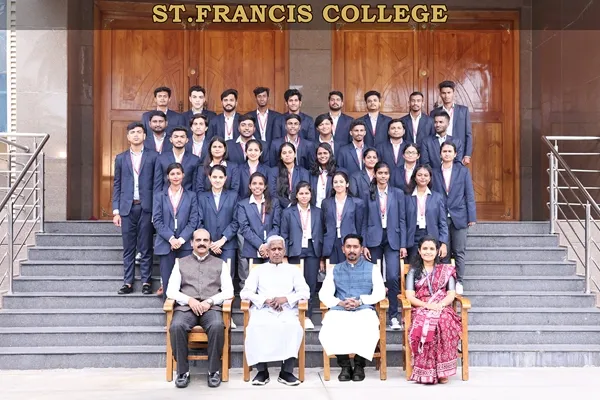




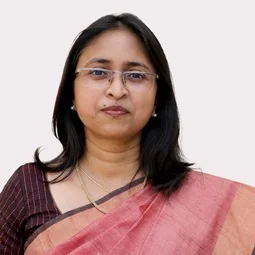





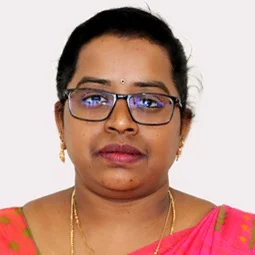














.webp)
.webp)
.webp)
.webp)
.webp)
















